Submarine D-1

Brief Synopsis
Cast & Crew
Lloyd Bacon
Pat O'brien
George Brent
Wayne Morris
Frank Mchugh
Doris Weston
Film Details
Technical Specs

Synopsis
Navy officers "Butch" Rogers and "Sock" McGillis, former rivals for Ann Sawyer, are reunited with Ann and her fiancé, Tom Callam, at the U.S. Naval Sub-base off Connecticut, from where the U.S.S. Dolphin , called Submarine D-1 , will make her maiden voyage. After Tom is killed when his submarine sinks during a drill, Butch promises to be Ann's guardian, while determined to modernize the submarine navy with a rescue chamber. Butch is then made chief of the D-1 , which will sail to San Diego through the Panama Canal under Lt. Comm. Dan Matthews, an old friend of Butch who needs the success of the D-1 for a navy promotion. Sock and his friend Lucky join the crew of the D-1 for a free ride to San Diego, where Ann has been transferred, and where Lucky plans to meet his fiancée Arabella, who will only marry him if he wins the lottery. En route to Panama, Sock's cocky attitude puts the crew in danger when he floods the main ballast valves and the D-1 is unable to surface, delaying her arrival in Panama. After the D-1 arrives in San Diego, Matthews transfers Butch to the U.S.S. Holland to perfect his rescue chamber and makes the admonished Sock chief of the D-1 . When one of the D-1 's crew is hurt during combat maneuvers, Butch's rescue chamber saves the injured man and Sock just in time. Matthews and Butch then receive accolades from the Bureau of Navigation when the D-1 is recommissioned. Sock wins Ann for a wife, while Lucky wins the lottery, only to find that salt water has erased the winning numbers; Arabella then refuses to marry him.

Director

Lloyd Bacon
Cast
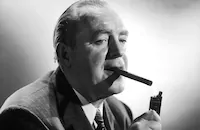
Pat O'brien
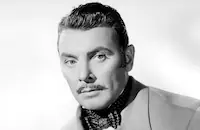
George Brent

Wayne Morris
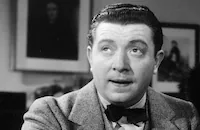
Frank Mchugh
Doris Weston
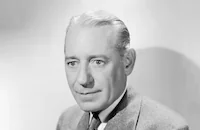
Henry O'neill
Dennie Moore

Veda Ann Borg

Regis Toomey
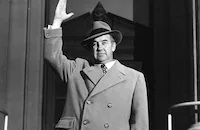
Broderick Crawford

John Ridgely
Owen King
Wally Maher
Jerry Fletcher
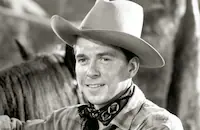
Ronald Reagan
Dick Wessel
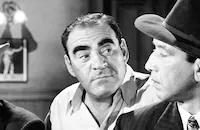
Ralph Dunn
Jeffrey Sayre

Don Defore
Dick French
Allan Kenward
Sol Gorss
Don Turner
John Shea
Mike Lally
Billy Vincent
John Tyrell
Frank Bingman
Robert Homans
Paul Barrett
Huey White
Eric Pettit
Gordon Clifford
Jack Hatfield
Max Hoffman Jr.
Kenneth Harlan
Eddie Featherston
Allen Mathews
Wilfred Henry
Pat O'malley
Gordon De Main
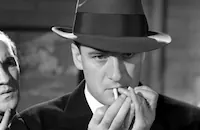
Elliott Sullivan
Walter Young
John Harron
Walter Clyde

Rosella Towne
Don Briggs
Eddie Roberts
Billy Wayne
Hal Craig
Jack Gardner
Frank Marlowe
John Marston
Nena Quartaro
Renee Torres
Nina Berget
Pat Flaherty
Alfonso Pedroza
Harry Strang
Ted Oliver
Anna Demetrio
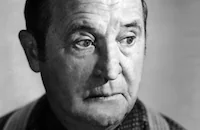
Frank Orth
Glen Cavender
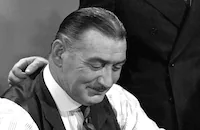
Ed Keane
Ted Osborne
Fred Mckaye
Philip Morris
Douglas Wood
Allan Cavan

Lee Phelps

Walter Miller

Emmett Vogan
Lottie Williams
Loia Cheaney
Fern Barry
John Elliott
Jim Farley
Clyde Dilson
David Newell
Crew
G. Alexander
Comm. G. W. D. Dashiells
Warren Duff
Lou Edelman
Arthur Edeson
Leo F. Forbstein
William Wister Haines
Esdras Hartley
Byron Haskins
William Holmes
Lawrence Kimble
H. F. Koenekamp
R[obert B.] Lee
Dick Mayberry
Howard Shoup
Max Steiner
Jack L. Warner
Frank Wead
Frank Wead

Film Details
Technical Specs

Articles
Ronald Reagan, 1911-2004 - TCM Remembers Ronald Reagan
Ronald Reagan, the actor turned elected official whose fascinating career saw him develop as a contract player for Warner Brothers studios, to a politician who fulfilled his ambitions by becoming the 40th President of the United States, died at his home in Los Angeles on June 5 after a long battle with Alzheimer's disease. He was 93.
He was born Ronald Wilson Reagan on February 6, 1911 in Tampico, Illinois to John and Nelle Reagan. When Reagan was nine, his family settled down in the small community of Dixon, about 100 miles west of Chicago. After high school, Reagan enrolled in Eureka College, a small Christian school near Peoria. He graduated in 1932 with a degree in Economics, and pursued a career in broadcasting. His first gig was as a part-time announcer at WOC in Davenport, Iowa. Within a year, WOC had merged with its big-sister station, WHO in Des Moines, and Reagan was hired as a sports announcer.
In the spring of 1937, Reagan drove to Southern California to catch the Chicago Cubs in spring training on Santa Catalina Island. While he was in California, he wrangled a screen test and signed a contract for $200 a week with Warner Brothers. His film debut was rather inauspicious; he portrayed a radio announcer in an innocuous comedy Love is on the Air (1937). He made a few more "B" programmers like Hollywood Hotel (also 1937), and Girls on Probation (1938), before getting his first prominent role opposite Bette Davis in the popular tearjerker, Dark Victory (1939).
Although he seldom got credit for being a good actor, there was no denying that Reagan held his own given the right material: Knute Rockne, All American as the doomed Notre Dame football hero George "The Gipper" Gipp, where he delivered the film's immortal line "Win one for the Gipper!"; Santa Fe Trail in which he ably supports Errol Flynn in one of the boxoffice hits of its era (both 1940); Kings Row (1941), featuring one of his finest performances as a small-town playboy whose legs are amputated by a careless surgeon; and Desperate Journey (1942) where he again supported Flynn in an exciting action picture.
Due to his poor eyesight, Reagan didn't see any action in World War II, so the studio heads assigned him to star in a series of patriotic films produced by the First Motion Picture Unit of the Army Air Forces in Culver City. Between 1942-45, Reagan starred in over 400 of these films. After the war, Reagan still found some good roles: The Voice of the Turtle (1947) proved he had a deft hand at light comedy opposite Eleanor Parker; The Hasty Heart (1949) offered another underrated performance as he ably portrayed the Yank in John Patrick's much heralded wartime play; and Storm Warning (1950) was a slick melodrama that cast Reagan as a crusading District Attorney determined to bring the KKK in a small southern town, with the help of Doris Day and Ginger Rogers!
It was around this time that Reagan became involved in politics. In 1947, he began a five-year term as president of the Screen Actors Guild (SAG), and testified in October of that year before the newly formed House Un-American Activities Committee (HUAC). He identified suspected Communists Larry Parks, Howard Da Silva and Alexander Knox, all of whom were subsequently called to testify, and subsequently blacklisted. Later records showed Reagan was so concerned about the Communist influence in Hollywood, that he became an FBI informer.
As Reagan became steeped in his political career, his parts throughout the '50s became inferior: the notorious Bedtime for Bonzo (1951); the coy "sex" comedy She's Working Her Way Through College (1952) that cast him as a college professor who romances a stripper! (Virginia Mayo); Cattle Queen of Montana (1955), a sluggish Western that even the redoubtable Barbara Stanwyck couldn't save; and finally Hellcats of the Navy (1957), a stodgy war picture that would be his only film that co-starred his wife Nancy (Davis).
Television offered some salvation. For eight years, (1954-62), Reagan served as the host of General Electric Theater, a televised series of dramas. He also found a niche as GE's goodwill ambassador to employees and to civic and business groups around the country, furthering his taste and honing his craft as a public official. By the mid '60s, Reagan would move into politics entirely, save for one last film, the thrilling The Killers (1964), Reagan's only known villainous role, as a murderous gangster. That same year, he actively campaigned for Republican Presidential candidate Barry Goldwater, although Goldwater lost to Lyndon B. Johnson.
Reagan whose profile was riding high, had cemented his future as a successful politician. In 1966, he ran against incumbent Governor Pat Brown for the state of California and won, serving successfully for two terms until 1974.
Reagan began an all-out, two-year drive to wrest the 1976 nomination from incumbent Gerald R. Ford, an appointed vice president who became president on the resignation of Nixon. Reagan fell short by a handful of delegates to the Republican national convention. But Ford lost to Jimmy Carter, and Reagan became the front-runner to challenge Carter in 1980. After defeating Carter, Reagan held two terms as President of the United States (1981-89). After his second term was over, he retired quietly in California. In 1994, it was revealed to the media that Reagan was suffering from Alzheimer's disease; he had been kept out of the public eye since then.
He was married briefly to actress Jane Wyman (1940-48), and had two children; a daughter Maureen and an adopted son, Michael. In 1952, he married a budding film starlet, Nancy Davis, who bore him two more children; a daughter, Patty; and a son, Ronald Jr. Ronald Reagan is survived by Nancy, Michael, Patty and Ron Jr. His daughter Maureen died of Melanoma in 2001 at the age of 60.
by Michael T. Toole

Ronald Reagan, 1911-2004 - TCM Remembers Ronald Reagan
Quotes
Trivia
'Reagan, Ronald' had a role in this film, but it was completely edited out.
Notes
This film carried an onscreen dedication to the U.S. Submarine Service. Its working title was Submarine 262. The film was shot on Santa Catalina Island and Coronado Beach, San Diego, CA, at New London, CT, and at the Panama Canal. According to a news item in Film Daily on December 24, 1937, this film was pulled out of national release during the pre-holiday period; Warner Bros. planned to reopen the picture on Christmas Day, to take advantage of the "post-shopping" trade, for a second-run engagement of two-hundred and eight days. The film's pressbook notes portray Paul (played by Ronald Reagan) as a central figure in the plot: a friend of Ann's since childhood and now an "aviation chief petty officer," he vies for her attentions. None of the film's reviews mentions Reagan's character, although he is listed sixth in the Daily Variety preview cast list. According to a modern source, Reagan's part was deleted from the final print; his placement in Daily Variety suggests that his part was in the preview print. According to the pressbook, the story for this film had to be approved by the U.S. Navy and the submarine base at New London, CT, in order to protect navy secrets.















